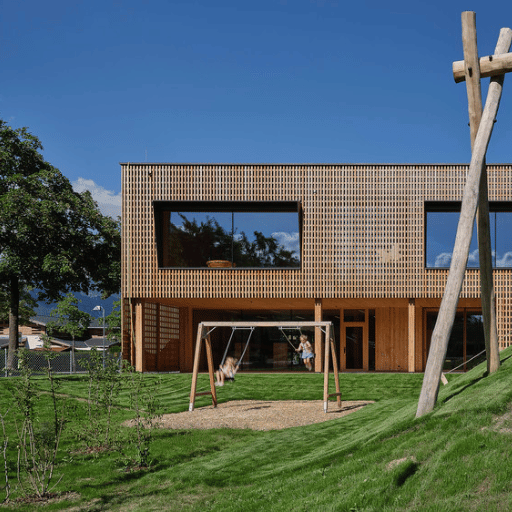Psychologe/Psychologin (Psychologist) Role Interview (Kindergarten)
In this article, we’ve put together all the information you need to run an interview for a Psychologe/Psychologin (Psychologist) in a Kindergarten in Austria. We’ve included a Psychologe/Psychologin (Psychologist) job description, job requirements (useful for adding to job advertisements), common job interview questions to ask someone applying for your advertised Psychologe/Psychologin (Psychologist) role, follow-up questions to ask your potential new hire and excellent answers that candidates give to Psychologe/Psychologin (Psychologist) job interview questions. We’ll also look at what happens in an interview for a Psychologe/Psychologin (Psychologist) and the hiring process after the interview.
Psychologe/Psychologin (Psychologist) Role Job Description, Requirements, Questions
Role Job Description:
The role of a Psychologe/Psychologin (Psychologist) in a Kindergarten in Austria is to provide psychological support and guidance for children. They are responsible for assessing and addressing the emotional, social, and behavioral needs of the children in the kindergarten. Additionally, they may offer advice and support to parents and teachers on how to handle specific situations and promote the overall well-being of the children.
Role Job Requirements:
To be successful in this role, a Psychologe/Psychologin in a Kindergarten in Austria should have a strong educational background in psychology, preferably with a focus on child psychology. They should possess excellent communication and interpersonal skills to effectively interact with children, parents, and teachers. Additionally, they should have a deep understanding of child development and be able to identify and address any psychological issues that may arise in the kindergarten setting.
Role Job Interview Questions:
1. Can you tell us about your educational background and experience in child psychology?
2. How would you approach assessing the emotional and behavioral needs of children in a kindergarten setting?
3. How do you collaborate with parents and teachers to address specific situations and promote the well-being of the children?
4. Can you provide an example of a challenging situation you have encountered in your previous role and how you handled it?
5. How do you stay updated with the latest research and developments in child psychology?
Follow-up Questions:
1. Can you elaborate on the strategies you use to effectively communicate with children?
2. How do you ensure confidentiality when working with children and their families?
3. How do you handle situations where parents or teachers may not be receptive to your advice or suggestions?
4. Can you provide an example of a successful intervention you have implemented to support a child’s emotional well-being?
5. How do you manage your time and prioritize your tasks when dealing with multiple children with different needs?
Examples of excellent answers from candidates:
1. “I have a Master’s degree in Child Psychology and have worked as a Psychologist in a Kindergarten for the past three years. During my studies, I focused on child development and conducted research on the impact of early childhood experiences on long-term emotional well-being.”
2. “When assessing the emotional and behavioral needs of children, I believe in taking a holistic approach. I observe their interactions with peers and adults, engage in play therapy, and conduct interviews with parents and teachers to gather comprehensive information.”
3. “Collaboration with parents and teachers is crucial in promoting the well-being of children. I regularly communicate with parents through meetings and workshops, and work closely with teachers to develop strategies that can be implemented both at home and in the kindergarten.”
4. “In a previous role, I encountered a child who was displaying signs of anxiety. I worked closely with the child’s parents and teachers to create a supportive environment, implemented relaxation techniques, and provided resources for the child to express their emotions. Over time, the child’s anxiety significantly reduced.”
5. “I believe in the importance of continuous professional development. I attend conferences, participate in workshops, and regularly read research articles to stay updated with the latest developments in child psychology. This allows me to provide evidence-based interventions and support to the children in the kindergarten.”
Psychologe/Psychologin (Psychologist) (Austria) Interview Schedule
To conduct a comprehensive one-hour interview for a Psychologe/Psychologin (Psychologist) role in a Kindergarten in Austria, consider the following schedule:
- Introduction and overview of the role (5 minutes)
- Candidate’s experience and skills assessment (15 minutes)
- Job-specific questions (25 minutes)
- Follow-up questions and clarification (10 minutes)
- Candidate’s questions about the role and organization (5 minutes)
Best Practices for Psychologe/Psychologin (Psychologist) Candidate Communication
After the interview for your Psychologe/Psychologin (Psychologist) role (Austria), it is crucial to keep the candidate informed about the hiring process. Best practices include:
- Sending a personalized thank-you email to the candidate within 24 hours
- Provide a timeline for the Psychologe/Psychologin (Psychologist) hiring process and when they can expect to hear back
- Regularly updating the candidate on their Psychologe/Psychologin (Psychologist) job application status, even if there are delays
- Offering constructive feedback to unsuccessful candidates to help them improve for future opportunities at your Kindergarten
- Maintaining open and transparent communication throughout the entire process to ensure a positive candidate experience
Ready to start your hiring process?
Click the button above to get our simple-to-use Applicant Tracking System (ATS) that can be used to manage your hiring process.

